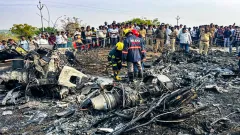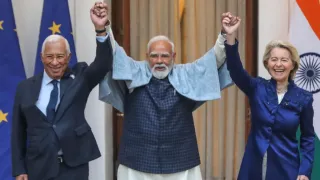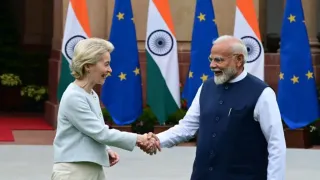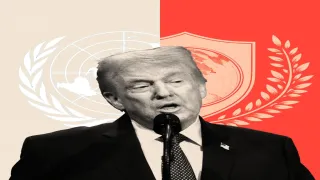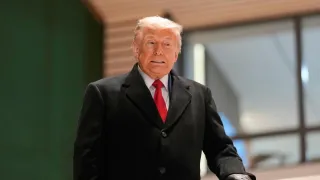In a fiery address this week, Pakistan’s Defence Minister Khawaja Asif accused the Afghan leadership of acting at the behest of New Delhi, labeling Kabul a “puppet of India.” His remarks came amid a dramatic breakdown of peace talks and escalating border tensions between Pakistan and Afghanistan.
Asif warned that if Afghanistan launches any form of aggression against Islamabad, Pakistan would deliver a response “50 times stronger.” The statement reflects Islamabad’s deep frustration with what it perceives as Indian-influenced Afghan inaction and the persistent threat of militant activity emanating from Afghan soil.
Beyond the sharp rhetoric, his address drew attention to the wider geopolitical dynamics in the region — from stalled negotiations in Turkey to the recurring spectre of proxy war, and a growing sense that Pakistan’s patience may be wearing thin in its relations with both Kabul and New Delhi.
Allegations of Indian Proxy War through Kabul
Asif accused the Afghan regime of being manipulated by India to wage a low-intensity conflict against Pakistan. He stated that the people in Kabul pulling the strings and staging the puppet show are being controlled by Delhi.
He alleged that the Afghan leadership’s negotiators backed away from an agreement multiple times after receiving instructions from Kabul, citing several reversals after contacts with the capital. This, he said, demonstrated Kabul’s lack of autonomy and India’s influence in its decision-making.
The minister claimed that India is compensating for what Pakistan views as its “defeat” along the western border by using Afghanistan as a strategic base, thus threatening Pakistan’s frontier stability.
Failed Peace Talks in Turkey and Aftermath
Negotiations between Pakistan and Afghanistan, mediated by Turkey and Qatar, collapsed after multiple back-and-forths and a lack of verifiable commitments from Kabul. Asif described the negotiations as sabotaged by external interference.
According to Islamabad’s account, Afghan negotiators repeatedly reverted to Kabul for instructions, delaying or reversing agreements just as a written pact seemed imminent. This lack of progress angered Pakistan’s delegation, who felt the core issue of militant sanctuaries remained unaddressed.
Pakistani officials said the talks were intended to solidify a mechanism to curb the activities of the Tehreek-i-Taliban Pakistan (TTP) from Afghan soil, but Kabul consistently declined to offer binding guarantees. The breakdown has raised fears of a return to full-scale conflict.
Stern Warning and Threat of Military Escalation
In his televised remarks, Asif declared that if Afghanistan even looks at Islamabad, Pakistan will gouge their eyes out, adding that Pakistan would respond “50 times stronger” to any aggression.
He reaffirmed Pakistan’s stance that Kabul is directly responsible for terrorism inside Pakistan, claiming militant groups operate with impunity from Afghan territory under the Afghan regime’s watch. He asserted that there should be no doubt Kabul is responsible for the terrorism in Pakistan.
The warning signals a possible shift from diplomatic engagement back toward military readiness, with Islamabad making clear it sees fewer viable alternatives if agreements continue to fail.
Regional Impact and Broader Geopolitics
The escalation underscores mounting tensions across the region, where India’s deepening ties with Afghanistan, Pakistan’s security concerns, and border issues are converging into a more volatile landscape. Analysts say Pakistan perceives a widening strategic encirclement.
The collapse of talks and the robust military rhetoric come at a time when a recent cease-fire brokered in Doha remains fragile. Any failure to restore confidence may destabilize the situation not just bilaterally but across the South Asian security environment.
For Pakistan, the stakes are high: Islamabad must show resolve against militant incursions without triggering a conflict spiral it may not be fully prepared to manage. Meanwhile, Kabul and its regional allies will be watching closely how Islamabad translates words into action. The coming days may determine whether diplomacy regains ground or whether the rhetoric sets the stage for renewed conflict.
Also Read: Why Cloud Seeding Failed to Bring Rain in Delhi: IIT Kanpur









